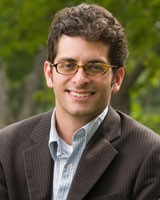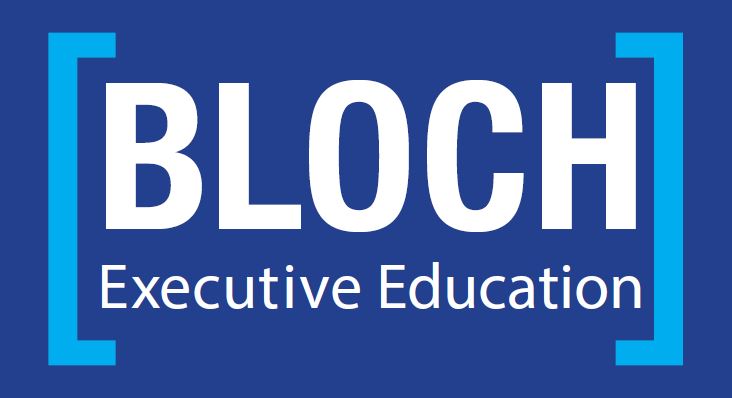Faculty Spotlight: Brent Never, Ph.D.
 Brent Never teaches the Applied Statistical Methods course for the Executive MBA Program. A two-time Fulbright Scholar, Never most recently went to the University of Ulster in Northern Ireland on a Fulbright Scholarship, where he conducted research on nonprofit service provision after thirty years of ethnic conflict. He received his Ph.D. in public policy from the School of Public and Environmental Affairs at Indiana University- Bloomington. He has also worked in the Statistics and Research Department at the Central Bank of West African States.
Brent Never teaches the Applied Statistical Methods course for the Executive MBA Program. A two-time Fulbright Scholar, Never most recently went to the University of Ulster in Northern Ireland on a Fulbright Scholarship, where he conducted research on nonprofit service provision after thirty years of ethnic conflict. He received his Ph.D. in public policy from the School of Public and Environmental Affairs at Indiana University- Bloomington. He has also worked in the Statistics and Research Department at the Central Bank of West African States.
Currently, Dr. Never’s research focuses on the impact of economic recession on the capacity of nonprofits to continue providing necessary services to those most in need. He is finishing an edited volume of Nonprofit and Voluntary Sector Quarterly considering the impact of his mentors, Lin and Vincent Ostrom, on the scholarship of nonprofit organizations; Lin won the Nobel Prize in Economics in 2009. He has completed two chapters for the Palgrave Handbook of Volunteering, Civic Participation, and Nonprofit Associations on voluntarism around the world, and is currently working on a project to map the distribution of human service funding to poor individuals: (manuscripts are under review). This spring Dr. Never has been awarded tenure and will be promoted to Associate Professor.
Legacy Journal – Class of 2015
The Legacy Journal is a new tradition adopted into the Bloch Executive MBA family. Each year, one journal entry is composed by a student from the graduating class who represents the class as a whole and pens down their experiences, advice and memories during the program.
Authored by Alumna Kristen A. Page, Bloch Executive MBA Class of 2015
May 14, 2015:
This is the inaugural entry in the “Legacy Journal” for the UMKC Bloch School’s Executive MBA program. My name is Kristen Page, and I am a member of the EMBA class of 2015. I was asked to write out my words of wisdom, advice, and inspiration for future EMBA cohorts. I write on behalf of my classmates, and I sit down to do so on the night before our graduation. This is a pretty good time to do it – close enough to remember all of the hard work and the challenges, yet distant enough to look back with some perspective and appreciation. I hope my thoughts are helpful to each of you. If you are reading this, you have been accepted to the program and you have already achieved much in life and in your career. Congratulations on embracing further education through the Bloch School – you are making an impressive commitment, and you should be proud of yourself for it. Executive education is an investment in yourself, and I hope my thoughts will help you make the most of it.
First things first – go “all in” to the program. There is no question that you will get what you give. It is certainly going to be hard to balance work, family, and the program, but if you let the program slide, it will slide past you. Be committed, do the work, push yourself, be curious, be interested, and be open to the many ways you can learn. You will learn as much as you are willing.
Second – be a “good citizen” in the program. The EMBA experience is as much about teamwork, collaboration, and your cohort as it is about nuts and bolts content. So be a good cohort member – be reliable, volunteer, lead, follow, defer, challenge, and have fun. The close connection you will develop with your classmates is the distinguishing feature of the EMBA experience. Embrace it and learn from your classmates all you can.
Third – appreciate differences, and differences of many types. You will experience many differences in the program – different ideas, perspectives, backgrounds, work styles, leadership styles, attitudes, and approaches. Learn to not only notice differences, but appreciate them, value them, and figure out how they can be powerful and how they can work to strengthen a situation. This is a key part of leadership – use the program to practice this skill.
Fourth – focus on your weaknesses and use the program as a mini-laboratory to work on improving them. The EMBA program is going to challenge you and stretch you in many ways, and it will help open your eyes to areas you need to work on (if you are willing to see them). Do your best to see those things and work on them. Some need to focus on leading more, some on listening more, others need to work on speaking, others on writing, some need help with self-awareness, others with time management and focus. Figure out what you need to improve yourself. This is an opportune time to do it.
Fifth – be a contributor. As you will quickly learn, class days are long affairs. The length alone is a challenge. Class time will be infinitely more interesting, enriching, useful, and up-tempo if you all contribute. To state the obvious, you can’t contribute in an on-point, constructive way if you are not prepared to contribute. This is a long-winded way of saying: read for class. It’s important, and it will make every class session immeasurably better. And, you will each be better able to learn from each other.
Sixth – pull your weight. Much of the work of the program is done in teams or groups, so everyone must be reliable and engaged. No one likes a free-rider or someone who always takes the easy work. Establish a reputation early for being reliable, dialed-in, and willing to do the heavy lifting. And, sometimes volunteer for “stretch” assignments or roles. That’s when you will learn the most. If you aren’t good in accounting, volunteer to lead that project (or co-lead). Challenge yourself. And challenge each other, too. If you have a teammate who does not feel comfortable with presenting, give them some extra at bats and support them.
Seventh – value your time in the program because it will be over before you know it. I can’t believe how quickly the program has gone. So be mindful of the experience throughout – get to know classmates, faculty members, and the administrators. They will be a part of your new network once the program ends, so get to know them while you can. Also – take time during breaks and lunch to talk to the people in the other class – they are also potential connections and friends.
Eighth – know you can’t “do it all” but try to do most of it. Be easy on yourself to the extent that you will be in a pressure cooker during the next two years and some things will drop. But, still stay focused and rigorous throughout. You owe it to yourself to work really hard and maximize the experience.
Again, I hope my thoughts are helpful as a supplement to your excitement and, likely, nervousness about the program. It will be an incredible experience, and I wish you each the very best.
Information Sessions
Friday, July 15, 2016
11:30am-1:00pm (Info Luncheon & Alumni Panel)
Thursday, August 11, 2016
11:30am-1:00pm (Info Luncheon & Alumni Panel)
Saturday, September 17, 2016
9:00am-11:30am (Info Session with Class Preview & Alumni Q&A)
